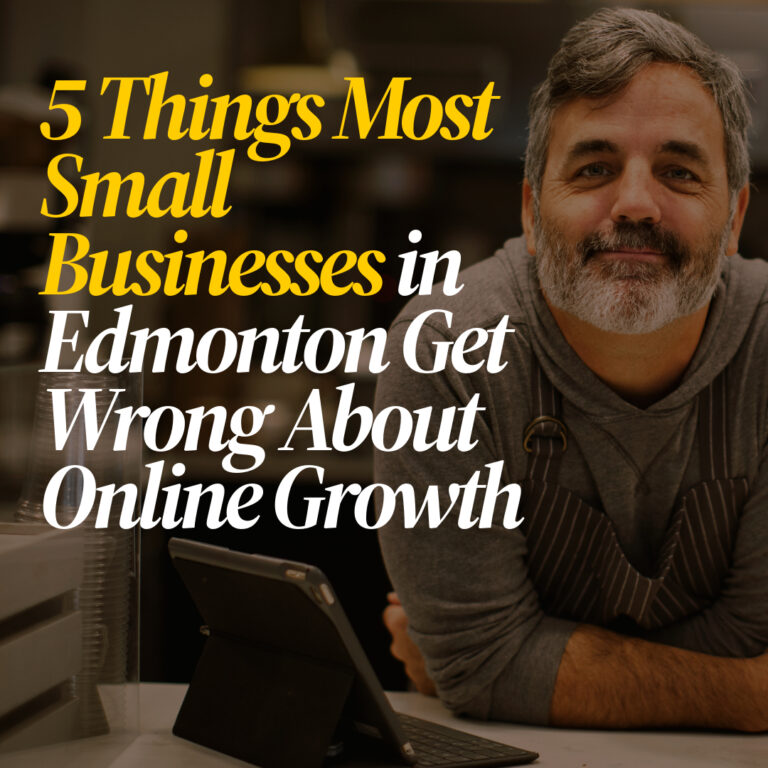Does PPC Work Better in Smaller Markets Than Local SEO?

Does PPC Work Better in Smaller Markets Than SEO?
“I run a small business in a city of 30,000 people. Is it worth doing SEO, or should I just use Google Ads?”
This is a common—and important—question for local business owners, especially in smaller Canadian cities and towns. When competition is light and audiences are tight, the rules change. What works in Toronto or Vancouver won’t necessarily apply in Lethbridge, Red Deer, or Swift Current.
Let’s break this down, honestly and strategically, so you can make an informed decision.
1. Understanding the Dynamics of a Small Market
Before we even compare SEO and PPC, we need to define what makes a small market unique:
- Lower search volume: Fewer people means fewer searches per day for your services.
- Less competition: You’re likely not bidding against dozens of aggressive competitors.
- Higher intent traffic: In smaller communities, users often know exactly what they want.
- Local relationships matter more: Word of mouth, local trust, and familiarity impact conversions more directly.
So how do SEO and PPC respond to this unique terrain?
2. PPC in Small Markets — Quick Wins, But…
The Good:
- Immediate visibility: Your ad can appear within hours—perfect for limited-time offers or launching a new service.
- Hyper-targeted: You can focus on your postal code, town, or region. Great for service businesses like plumbing, roofing, or physiotherapy.
- Lower CPCs: With less advertiser competition, you may pay much less per click compared to a dense urban market.
The Catch:
- Limited search volume = limited scale. Even if you’re bidding on the right terms, only a handful of people may be searching daily.
- Less brand memory: PPC is transactional. Once your budget’s gone, so is your visibility.
- Ad fatigue: In a small town, people may see your ad over and over, leading to ad blindness or annoyance.
3. SEO in Small Markets — Slow Burn, Strong Roots
The Good:
- Long-lasting presence: Once you rank for “[Your Service] in [Your Town],” you’re not paying per click.
- Credibility: Organic results are perceived as more trustworthy, especially in tight-knit communities.
- Local directories & citations are easier to manage: Fewer listings = less technical SEO effort to maintain authority.
- Less competition = easier rankings: You may rank #1 with just a few high-quality pages and a consistent blog strategy.
The Catch:
- Takes time: Even in smaller markets, expect 3–6 months for results if you’re starting from scratch.
- Requires content or optimization effort: You’ll still need to maintain your site and Google Business Profile regularly.
- Unpredictable updates: Google’s local ranking algorithm can shift unexpectedly, impacting small businesses disproportionately.
4. What Google Data & Trends Tell Us
According to Google’s Economic Impact Report, businesses that show up in both organic and paid search results enjoy a 2x increase in visibility and CTR. But here’s where it gets interesting:
In smaller markets, local intent is stronger, and trust matters more. SEO often carries more weight over time, while PPC is used for seasonal or promotional spikes.
Google’s own documentation emphasizes the value of helpful content and local presence signals—indicators that SEO, especially local SEO, is here to stay.
5. Real-World Application — What Should You Do?
When PPC Makes More Sense in a Small Market:
- You’re launching a new business or service and need exposure fast.
- You’re offering seasonal or time-sensitive promotions (e.g., winter snow clearing).
- You’ve tested SEO for months and still can’t crack the top 5.
- You want data on high-converting keywords before building long-term SEO content.
When SEO Is the Better Bet:
- You have a fixed or small monthly budget.
- You’re in a market with few competitors and can dominate with basic optimization.
- You want to build authority and reduce long-term marketing spend.
- Your business depends on local trust (e.g., dental, legal, counselling services).
6. Combine Both for Smart Local Domination
Don’t put all your eggs in one basket—use both. Here’s how they can work together even in a small market:
- Use PPC to test ad copy, offers, and keywords. Track what gets clicks and calls.
- Invest in SEO to hold your ground for your top services. Let content do the long-term work.
- Run Google Ads for only your top services, or only during high-volume seasons.
- Maintain a Google Business Profile with reviews, weekly updates, and service area optimization.
Market Size Doesn’t Eliminate Strategy—It Refines It
Small markets aren’t a loophole; they’re a unique playing field. The question isn’t “Does PPC work better than SEO?” It’s:
“How do I use each channel based on my market’s pace, size, and behavior?”
In small-town or low-competition areas, SEO tends to win on longevity and trust. PPC wins on speed and control. But together, they form a strategy that builds visibility now while planting seeds for tomorrow.
No market is too small for smart marketing. It just needs the right touch.


